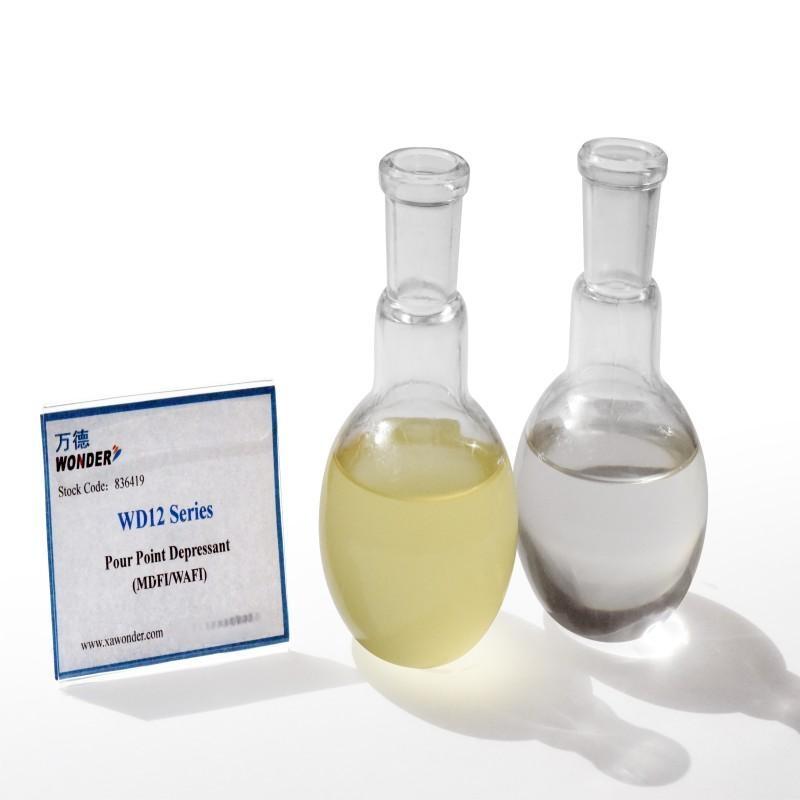-
Categories
-
Pharmaceutical Intermediates
-
Active Pharmaceutical Ingredients
-
Food Additives
- Industrial Coatings
- Agrochemicals
- Dyes and Pigments
- Surfactant
- Flavors and Fragrances
- Chemical Reagents
- Catalyst and Auxiliary
- Natural Products
- Inorganic Chemistry
-
Organic Chemistry
-
Biochemical Engineering
- Analytical Chemistry
-
Cosmetic Ingredient
- Water Treatment Chemical
-
Pharmaceutical Intermediates
Promotion
ECHEMI Mall
Wholesale
Weekly Price
Exhibition
News
-
Trade Service
International oil prices in March were a roller coaster
.
On March 1, the price of the April contract for U.
S.
crude oil exceeded $100/barrel to $106.
52/barrel, up 11.
28%
from the previous day.
On March 7, WTI crude oil once stood at a high of $133.
46 / barrel; Brent crude May futures hit a high of $139/b
.
In just a few trading days, crude oil prices have hit new highs
several times.
However, Brent crude futures have fallen nearly $40 since hitting a 14-year high of $139.
1 on March 7, driven by the progress of ceasefire negotiations between Russia and Ukraine and demand concerns caused by the epidemic, and U.
S
.
crude futures have also fallen more than $30 from a high of $130.
50 since 2008 hit a week ago.
As of 21:00 on March 15, Brent crude oil futures fell $5.
50 / barrel, or 5.
38%, to $97.
81 per barrel on the day, and the price of U.
S.
crude oil futures April futures fell $6.
50 / barrel to close at $96.
52 / barrel, down 6.
35%.
The situation in Russia and Ukraine is slowing down
The ceasefire talks between Russia and Ukraine have eased concerns about further supply disruptions, in addition to the pandemic's concerns about demand
.
According to CCTV news client news, on March 15, local time, Arakhamia, chairman of the parliamentary group of the Servant of the People Party of Ukraine, announced the resumption
of the fourth round of Russian-Ukrainian negotiations.
More substantive talks between Ukraine and Russia have ignited hopes for a diplomatic end to the Russia-Ukraine crisis, which in turn has eased fears
of a shortage of crude oil.
At the same time, international oil prices fell sharply on Monday as renewed coronavirus outbreaks in major East Asian countries triggered demand concerns
.
Industry insiders said that the expectation of positive progress in the Russian-Ukrainian ceasefire talks will help ease the prospect
of tight supply in the global oil market.
Southeast Asia's containment measures to prevent the spread of the epidemic have also deepened concerns about
slowing demand.
In this regard, Chen Tong, a crude oil analyst at Yide Futures, told reporters that the recent sharp fluctuations in international oil prices, the rise in international oil prices in the first half of the period, mainly related to the conflict between Russia and Ukraine, especially with the implementation of sanctions on Russia by countries such as Europe and the United States, the blockage of its exports has also triggered market concerns about crude oil supply, pushing Brent oil prices to break through $139 / barrel, a new high
since 2008.
The new round of talks between Russian and Ukrainian officials focused on a potential ceasefire involving the immediate withdrawal of troops and security guarantees on March 14
, Ukrainian negotiator Mykhailo Podolyak said.
Rebecca Babin, senior energy trader at Private Wealth Management at Commercial Bank of Canada, said negotiations between the two countries are pushing oil prices lower in the short term because the market is much more sensitive to sentiment than the actual supply and demand situation
.
The delegations of Ukraine and Russia held a fourth round of talks
via video on Monday.
Podolyak, an adviser to the Ukrainian president and negotiator, said the new round of talks between Russian and Ukrainian officials focused on a potential ceasefire involving the immediate withdrawal of troops and security guarantees
.
Ukraine and Russia are expected to sign a peace agreement within one to two weeks at the earliest, and by May at the
latest.
Rebecca Babain said negotiations between the two countries are pushing oil prices lower in the short term because the market is much more sensitive to sentiment than the actual supply and demand situation
.
Kaushal Ramesh, an analyst at energy research firm Rystad Energy, said oil prices were reflecting a bearish sentiment, coming from expectations
of positive progress in the latest round of negotiations between Russia and Ukraine.
However, in the fourth round of negotiations, there was also a small episode, video negotiations were interrupted, a member of the Ukrainian negotiating delegation, adviser to the Ukrainian presidential office Podolyak said on the same day that the Ukrainian and Russian delegations video negotiations "technical pause" until the 15th, the working group will complete some supplementary tasks, negotiations will continue
.
Podolyak issued a statement after concluding video negotiations with the Russian delegation on the same day, saying that the Ukrainian and Russian representatives clearly expressed their respective positions in the negotiations, and the two sides had "difficulty in communication"
.
The head of the Russian delegation and assistant to the president Meginsky said on social media on the 14th that including weekends, Russia negotiates with the Ukrainian delegation every day by video, which effectively saves time and money
.
Russia will do its utmost to implement the tasks set by President Putin and strive for a peaceful future
for Russia.
At 19:30 Beijing time on March 15, Arakhamia, chairman of the parliamentary group of the Servant of the People Party of Ukraine, announced the resumption
of the fourth round of Russian-Ukrainian negotiations.
OPEC production increase is expected to strengthen
Chen Tong said that with the partial progress of the follow-up Russian-Ukrainian negotiations, the market assessment of the crude oil supply prospects disrupted by the Russian-Ukrainian conflict may improve, coupled with the positive progress of the Iranian nuclear negotiations and the UAE's statement on increasing production, etc.
, the high level of international crude oil prices has fallen
sharply.
It is worth noting that the current global crude oil market has insufficient spare capacity, and some Russian crude oil exports are substantially restricted
.
The overall supply situation of crude oil is still very grim, and international oil prices are expected to remain around
$100 per barrel in the medium term.
In addition to the situation in Russia and Ukraine, the pace of OPEC production increase and the Iranian nuclear negotiations are also key factors
affecting the trend of oil prices in the near future.
In addition, the decline in oil prices is also related to the supply and demand side
.
According to the US Consumer News and Business Channel (CNBC), on the supply side, the United Arab Emirates, a major OPEC member, expressed support for additional production increases, and the International Energy Agency also said that it would release more crude oil reserves
.
On March 9, UAE Ambassador to the United States Yusuf Otaiba said on social media Twitter that the UAE favored an increase in oil production and would encourage OPEC to consider increasing production, although UAE Energy Minister Suhail Mazroui later made remarks
that disagreed with Otaiba.
Mazroui said the UAE is committed to implementing agreements between OPEC and non-OPEC producers, as well as the existing monthly output adjustment mechanism
.
According to Reuters, on March 14, local time, a senior British official said that British Prime Minister Boris Johnson will travel to Saudi Arabia this week to try to persuade Saudi Arabia to increase oil production
.
As the world's largest crude oil importer and second largest oil consumer, some major cities in China have tightened epidemic prevention measures in response to the epidemic, making the market bearish about the outlook for crude oil demand, and investors selling short-term and profit-taking
.
Previously the Russia-Ukraine conflict led to a surge in oil prices, Wells Fargo strategists believe that even if the conflict ends in the short term, the West will continue to avoid buying Russian oil
for the foreseeable future.
As a result, oil prices will continue to rise
in the coming quarters.
"We have significantly raised our oil price forecast and now expect the global benchmark Brent crude to average $140 per barrel in the second quarter of 2022
.
We expect oil prices to slowly retreat
in the coming quarters due to lower demand due to higher oil prices, coupled with increased supply from other major producers, including the United States.
”
According to the website of China's National Health Commission, from 0 to 24 o'clock on March 14, 31 provinces (autonomous regions and municipalities directly under the central government) and the Xinjiang Production and Construction Corps reported 3,602 new confirmed cases
.
In addition, at present, the domestic epidemic situation is becoming increasingly serious, and more serious prevention and control measures have been introduced in many places, and enterprise shipments have been affected to a certain extent, which is not conducive to inventory digestion, market mentality is under pressure, and domestic bulk commodities have generally declined
.
Russia's fuel supply is limited, ship fuel demand is basically maintained, seasonal heating demand exists and future replacement expectations are strong, fuel supply and demand are strong, but the impact is relatively long-term, and the overall price is still mainly to follow oil price fluctuations
.
According to foreign media news, sources said that US President Biden may go to Brussels, Belgium, next week to meet with NATO leaders to discuss the situation
in Russia and Ukraine.
On the demand side, the outlook for global oil demand is once again at risk due to the surge in coronavirus cases and more lockdowns in major Asian countries, also putting downward pressure
on oil prices.
Comprehensive Korean media reports, South Korea's Central Epidemic Prevention and Countermeasures Headquarters reported on Monday that South Korea had 309,790 new confirmed cases of new crowns the day before, and the number of confirmed cases in a single day exceeded 300,000 for three consecutive days
.
At the same time, the outbreak of the new crown pneumonia in Shanghai and Shenzhen, China, due to China's zero-tolerance stance, some areas have been locked down
.
In response to rising coronavirus cases, Toyota announced the suspension of production in Changchun, China, due to coronavirus closure measures, while Foxconn suspended production at its iPhone factory in Shenzhen
.
At S&PGlobal Commodity Insights' 9th Asia Refining and Petrochemicals Summit, participants said Asian refiners had little problem finding supplies to replace Russian crude, but end-users hoped OPEC and its allies would double their monthly production increases given the increased burden of raw material costs and falling oil inventories
.
J.
P.
Morgan said about 1-2 million b/d of oil and petroleum product exports could be at risk
if European customers abandon Russian spot oil carings.
The bank said it expects the impact of oil trade on production to be limited in the short term, but exports of about 6 million b/d could be limited
in the short to medium term.
J.
P.
Morgan said that as tensions in the oil market will continue to persist in the medium term, "we believe that the risk premium for oil prices will continue to rise
.
" The increase in the risk premium for oil prices will increase confidence that oil prices will reach $125/b in 2022 and $150/b in 2023.
"







